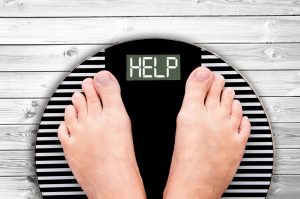by Justin Mckibben | Jun 6, 2017 | Addiction Stigma, Family, Parenting, Stigma, Teen Drug Abuse

(This content is being used for illustrative purposes only; any person depicted in the content is a model)
Having a family member or loved one struggling with drugs or alcohol is an incredibly tough place to be. For parents, it can be one of the most emotionally difficult experiences. Having a child who is using drugs or alcohol can be terrifying, but it can also cause a lot of internal conflict and self-doubt. Loved ones frequently find themselves looking for answers to questions they never knew to ask, and wondering how they can help make a difference. The parents of addicts have to face a lot of unique and intimate obstacles, but there are some very important things to remember when facing this painful situation.
To learn more about how to handle the difficult emotions and situations parents and family members face with an addicted loved one, download our FREE e-book
“What is the Difference Between Helping and Hurting”
DOWNLOAD FREE E-BOOK
Here are 5 things we want the parents of addicts to know.
-
You are not alone
When struggling with something as personal and as frightening as having an addicted child, people can feel separate from others. Many parents feel guilty, ashamed or embarrassed when their child is struggling with substance use disorder. This embarrassment or shame can lead to feelings of isolation.
The truth is there are countless families all across the nation going through the same thing. You are not alone. There are support groups specifically for the families and loved ones of addicts, and large networks of people seeking to provide information and support to parents of addicts who don’t know what to do or how to help.
In the face of the opioid epidemic in America, thousands of families have stepped up to advocate for better resources to educate the public about the dangers of addiction, and for better treatment opportunities. Nationwide organizations created by the parents of addicts fight to raise awareness, while treatment providers put an emphasis on the family being active in the recovery process.
-
It is not your fault
Of course parents take responsibility for their children, because it is their duty when they are born to protect them, raise them and help them grow to their potential. So it is no surprise that parents of addicts so often blame themselves for what their child is going through.
Many ask- what if I had been better? Should I have been more (or less) strict? Should I have been more (or less) affectionate? Parents of addicts can beat themselves up very easily with wondering what if, but the truth is it is not your fault.
Yes, many experts say there is a genetic predisposition, but everyone has one. It isn’t your genes, it’s a combination of unique DNA and unique circumstances. Yes, the environment matters, but again there is no one-size-fits-all formula to substance use disorder. People of all walks of life, in every neighborhood and from every kind of home suffer from addiction. Therefore, there is no exact parenting technique that can guarantee a child will never become addicted.
Most parents of addicts are the greatest version of a parent they possibly can be, but addiction does not discriminate. Helping more parents and family members to see this is another way we can overcome the stigma of addiction.
-
You can help overcome stigma
A lot of that shame and isolation we talked about above stems from the stigma of addiction. Some people still think substance use disorder is a moral failing or character flaw. They believe becoming addicted is a choice people made, not an illness people suffer from. This stigma makes people afraid to be open with others about their child’s addiction, which cuts them off from peer support.
It is important for the parents of addicts to help destroy the old stigmas that give people a false idea of what addiction really is. Parents have the power to share their experience, strength and stories of hope from a unique perspective. Addiction is one of the most misunderstood diseases in modern times, but the more parents of addicts share their stories, more awareness and understanding can help create innovations in treatment.
By being open about the difficulties your child has faced instead of hiding from it, not only can you be a warning to other families, but you can also empower them to understand that they too are not alone. Parents have a unique potential to stand up for their children and for each other to overcome stigma.
-
You have to take care of yourself
As a parent, it is absolutely understandable that your instincts tell you to put your own health and well-being after that of your child. But the reality is that if you are physically and emotionally exhausted, stressed out and unhealthy then there is no way you can provide the kind of help and support your child needs. You cannot be useful to anyone, especially your child, if you have not taken care of yourself.
If the parents of addicts can prioritize their own well-being, then they have the energy and resources to be more present and helpful to their addicted child. Allowing yourself to be as well as possible is not neglecting your loved one, it is preparing you for the opportunity to make a difference in their life.
This includes setting boundaries with your children, and being honest with them about what you are going through under these circumstances. It is not always easy, but it does matter.
-
We want to help!
At Palm Healthcare we want to make a difference in the lives of individuals and families who are struggling with drug or alcohol abuse and addiction. We believe in holistic healing as a stepping stone to real, lasting recovery. Palm Healthcare Company believes in the importance of uniting the parents, children, siblings and loved ones in the cause of progressive action toward amazing solutions that can not only save lives, but change them forever. For several years our facilities have worked to transform the lives of addicts and those closest to them.
Our Family Program is uniquely designed with healing for you and your loved one in mind. The Family Program focuses on improving communication, compassion, understanding and the overall support and of the entire family. We encourage all parents of addicts to research the Palm Healthcare Company Family Program and reach out to us with any questions.
Addiction doesn’t just affect the person who is drinking or drugging, it affects all those that are close to that person. Emotionally, physically, financially, the toll can be significant. If you or someone you love is struggling with substance abuse or addiction, please call toll-free now.
CALL NOW 1-888-922-5398
by Justin Mckibben | Jun 6, 2017 | Addiction Treatment, Drug Abuse, Outpatient Treatment

(This content is being used for illustrative purposes only; any person depicted in the content is a model)
Many people make the unrealistic assumption that drug or alcohol treatment is always similar to long-term, strict hospitalization. While some level of medical care is necessary, and some may be monitored in case of other more severe health issues, there are other levels of care that are more relaxed, with recovery programs customized to fit the individual’s needs. When considering treatment for drugs or alcohol, a lot of people end up asking- what is outpatient rehab?
When trying to get the most innovative comprehensive experience in treatment, it is vital to understand the levels of care and how each level of care can offer unique opportunities for growth.
What is Outpatient Rehab: Intensive Outpatient
One common aspect of treatment that many people are curious about is intensive outpatient programs (IOP). IOP for substance use disorder is a level of care that offers a number of helpful services while also allowing you to work, go to school or spend time with your family.
These kinds of programs require that an individual participate in therapeutic activities usually 3 to 5 days a week, depending on the program. Sometimes the schedule is flexible to your individual needs. When enrolled in an intensive outpatient program, patients will help create a treatment plan based on the aspects of recovery that seem most essential to their success. IOP programs are especially geared toward relapse prevention and developing healthy coping skills.
What is Outpatient Rehab: Common Services
Many holistic treatment approaches include other options for the individual’s treatment plan, such as:
Below are 4 common services you should look for in treatment:
-
Detoxification
A safe medical detox is always a huge help to getting started on the path to recovery. These detox services are crucial for those experiencing severe and dangerous withdrawal symptoms. If you are looking into outpatient treatment, it is always advisable to attend a safe medical detox instead of trying to quit cold turkey.
-
Group counseling
IOPs rely heavily on group therapy to enhance sober behaviors, develop communication skills, introduce structure, and provide guidance. IOP programs typically focus on different aspects of recovery, including:
- Addiction education
- Relapse prevention
- Stress management
- Coping skills
- Life skills
- Interpersonal process
- Support systems
When looking into options for treatment, it is important to make sure the program offers courses on these important elements.
-
Individual therapy
The IOP therapist’s primary objective is to help an individual resolve maladaptive behaviors in order to break the cycle. This kind of therapy is great for helping someone who is working or living at home to identify and rectify old destructive patterns in real time.
However, it is important to note that inpatient treatment is also extremely important because at the inpatient level of care the therapy is focused on finding the underlying causes and helping the individual to overcome serious traumas or issues behind substance use.
-
Family Programs
Addiction is a family disease, and it is important that loved ones be included in the healing process. The Palm Healthcare family program is designed to help educate the loved ones on addiction. By helping families better understand substance use disorder, they are then able to better communicate and support their suffering loved on in a healthier way.
Family programs provide the family with their own support systems, while helping to heal broken relationships between the user and their loved ones. When someone reaches an outpatient level of care, they may become more present in the family and therefore many people want their loved ones to be well-informed and prepared to best support them during the transition.
What is Outpatient Rehab: Why It’s Important
Outpatient treatment is a big step in the right direction for people struggling with substance abuse or addiction to continue receiving care while also integrating their recovery into their everyday life. Having a network of professional and personal support gives someone recovering from drugs or alcohol an extra line of defense between them and the substances that damage their lives.
However, it is recommended that outpatient treatment follow a period of inpatient treatment, also known as residential treatment. Not everyone can benefit from outpatient treatment without structure. Those suffering from co-occurring mental health conditions definitely do better with dual diagnosis treatment. Inpatient treatment is a more intensive and intimate level of care that provides a secure and safe environment for establishing a healthy foundation. It allows the individual to focus for some time on getting well and addressing the biggest obstacles they face.
Following a residential stay in treatment, many recovering from substance use issues will choose to attend an outpatient rehab program. A lot of people will take advantage of outpatient treatment while living in a sober living facility.
What is outpatient rehab? It is a great way to continue your recovery after detox and inpatient treatment. It is a point of progress in building a new life, while maintaining a connection to peer support and therapeutic resources. If you want to know more about treatment options and levels of care, Palm Healthcare wants to help. Please call toll-free now.
by Sher Delva | Jun 5, 2017 | Addiction, Addiction Stigma, Detox, Drug Abuse, Mental Health, Stigma, Therapy, Withdrawal

If you have gained a significant amount of weight after rehab, rest assured you are not alone. Like the freshman 15, gaining weight is practically expected. In fact, 65 percent of people gain weight after leaving rehab. Even more struggle with eating disorders, compulsive overeating, or what is now known as “food addictions.” What is the correlation and how can we get to the bottom of this?
First, we must look at the brain. Drug addiction and overeating have similar effects in the brain. When you were using drugs, it released happy chemicals like dopamine and serotonin which made you feel good. After becoming sober, you may find that you use food to acquire those same happy chemicals.
You might try to “replace” the high you felt from drugs with unhealthy foods. Foods high in fat, sugar, and calories tend to initiate a quick dopamine response in the brain. Unfortunately, like drugs, this happy feeling does not last long. Eventually, you crash and then try to eat again to achieve that same feeling. Substituting food for drugs or alcohol may lead to compulsive overeating and yes, weight gain.
Weight gain can be a source of personal suffering for some, and may even lead to a relapse. It can also contribute to health consequences like heart disease, high blood pressure, and diabetes. It is important to address the reasons why you have gained weight in recovery. Nutrition is crucial in the early stages of recovery, so it is important to recognize when you are not taking care of yourself properly.
Five common reasons people struggle with weight gain during recovery:
-
Stress
Stress is a risk factor for overeating. In the early stages of recovery, you may find yourself under a lot of stress, and now you do not have your drug of choice to mask those feelings. Research has shown time after time how stress can lead to overeating. For many, stress can lead to compulsive overeating and obesity.
-
Lack of Dopamine
One major reason for overeating is a lack of dopamine receptor in the brain. When the brain is low in dopamine, it affects impulse control and emotional regulation. Most people with any addiction have a lack of dopamine in the brain. The brain does not instantly recover once you stop using. In the absence of drugs for this reward mechanism, food becomes the next best thing. Weight gain inevitably follows.
-
History of Eating Disorders
Another reason for weight gain is a history of eating disorders before entering rehab. Dual diagnosis in rehab is extremely common. Many enter rehab with other psychological conditions including eating disorders. Almost 40 percent of women in recovery meet the criteria for an eating diagnosis. Men in treatment also experience binge eating and weight gain, especially in the beginning as they seek to satisfy cravings for drugs and alcohol. Few treatment centers screen their clients for eating disorders, so this is often not addressed once the recovering addict exits treatment.
-
Untreated Depression or Anxiety
As stated above, dual diagnosis is very common in treatment. Many addicts enter treatment with a history of anxiety and depression. Treatment for mood disorders can help reduce the risk of overeating related to these co-occurring disorders. Often, anxiety and depression can lead a person to overeat in an attempt to relieve themselves of these emotional hardships. Overtime, overeating occurs which leads to weight gain.
-
Nutritional Deficiencies
In some ways, weight gain after recovery is not a bad thing. Many recovering addicts are nutritionally deficient after detoxing from drugs. Chances are, there eating behaviors and lifestyle choices were not healthy while using. Eating can be a way of restoring your mind and body back to health. It is important to eat the right foods, however overstressing about weight gain should not be your main concern after leaving treatment. Your body may just be in a healing process. Your priority should be staying sober.
Despite the importance of nutrition in recovery, it is uncommon for treatment facilities to address it. It is important to go to a facility that incorporates wellness into the recovery process. While in treatment, take steps to eating healthy and exercising so that it becomes a lifestyle change upon leaving treatment.
There are steps that you can take to improve your overall health and well-being. Talk to your doctor about supplements you can take to help make the process easier. We encourage you to develop a healthy eating and exercise plan while you are in treatment. The staff at your facility may be able to help you along this process.
Overall, being mindful of your health while in treatment and after treatment is important. If you have gained weight after rehab, do not fret. Simple changes can turn it all around.
CALL NOW 1-888-922-5398
by staff | Jun 2, 2017 | Addiction, Detox, Drug Abuse, Prescription Drugs, Withdrawal

Here we are going to take a look at withdrawal symptoms. We will look at what they are, what determines how you will experience them and talk about how long they last. Then, what is the best way to overcome withdrawals.
How Long Do Withdrawals Last: What is Drug Withdrawal?
Drug withdrawal refers to the group of symptoms that occur upon the sudden discontinuation or even the decrease in consumption of prescription medications, illegal recreational drugs or even some other everyday substances like caffeine.
In order to experience withdrawal an individual must have first developed a dependence on the substance. This dependence can be physical, psychological, or both. Using a substance for an extended period of time will cause the body to gradually adapt in one way or another until it has become used to having it. Once the substance is removed or decreased, there becomes an imbalance in the body or mind as the individual is used to functioning with the substance.
There are many elements that symptoms of drug withdrawal, and the length of that withdrawal, vary depending on the drug of abuse and the length of the addiction.
How Long Do Withdrawals Last: Period of Use
The period of time one uses a drug can contribute to the length and intensity of the withdrawals. For someone who has been using drugs for a few months, the residual impact of those drugs may not be as strong or last as long as someone who has been using drugs for several years.
Because the body takes time to become dependent, the longer you are using a drug the more tolerance you build to it. Also, the functions of the body and mind can be altered by prolonged drug use to the point where they may take a long time to full heal. In some instances research has suggest there is damage that cannot be undone.
How Long Do Withdrawals Last: Different Substances
Of course one of the primary factors to answering this question is to identify the specific substance. Different substances will create different withdrawals, which will last different lengths of time and impact an individual in different ways. Some examples of specific withdrawals and how long they last include:
- Heroin and prescription painkillers: Many people experience flu-like symptoms that last for at least 24-48 hours
- Benzodiazepines (Benzos): People using benzos often experience withdrawals like anxiety and/or seizures, which can last weeks or even months
- Cocaine: For someone withdrawal from cocaine addiction, depression and restlessness lasting at least 7-10 days can occur
- Alcohol: Withdrawals from alcohol abuse can cause tremors and/or seizures, which can last from three days up to several weeks
So prolonged use of anti-depressants like the benzo drug Xanax will cause a much different reaction that withdrawals from an opioid like heroin. Some may be the same.
Don’t forget, these symptoms can be made even worse depending on other factors, such as length of time the substance has been used, at what dosage and how the drug was consumed.
How Long Do Withdrawals Last: General Withdrawal Timeline
Many sources have gathered data that could be used to make a rough estimate of how long withdrawals may last for certain substances. However, this general timeline cannot be guaranteed to be accurate considering each individual’s own health and habits can make these timelines vary.
Prescription Opioids
- 8-12 hours after last dose, for drugs like OxyContin and morphine, the withdrawals can start around this point
- 12-48 hours after the last dose the intensity of withdrawals can peak
- 5-10 days even up to a month or more after last dose opioid withdrawals can persist
Methadone
- 24-48 hours after last dose the withdrawals can begin
- Methadone withdrawals will peak in first few days
- Withdrawals will typically last 2 weeks or more
Benzos
- 1-4 days the withdrawals from drugs like Xanax, Valium and Ativan will begin
- Benzo withdrawals will be peaking within the first 2 weeks
- Protracted withdrawals can last months or even years without treatment
Alcohol
- 8 hours- a few days is usually all it takes for alcohol withdrawals to kick in
- Within 24-72 hours alcohol withdrawals will peak
- Alcohol withdrawals can last several weeks
Cocaine
- Withdrawal from cocaine starts within hours of the last dose
- After a few days cocaine withdrawal peaks
- Cocaine withdrawals can last anywhere from a week to 10 weeks
The data for these numbers can be found through the National Institute on Drug Abuse (NIDA) and various other sources.
Withdrawal symptoms will still depend on the many factors we have already mentioned, including the individual’s general health in the first place. Some drugs cause very real damage to the vital organs that can creature further complications with withdrawals.
How Long Do Withdrawals Last: Medical Detox
To avoid the pain, discomfort and health risks of withdrawal from drugs or alcohol do not detox at home. A safe medical detox is the best way to get the effective and comprehensive help you need to stay healthy while receiving quality care. Medical detox provides a safe and secure space to get through this beginning difficult stage of recovery.
The Palm Healthcare Company detox facility has a 24-hour medical and addiction professional staff to continuously evaluate individual progress, administer the appropriate medications, if needed, and provide unlimited support during this process.
Our highly qualified specialists genuinely strive to make recovery possible for everyone who needs help. If your or someone you love is struggling with substance abuse or addiction, please call toll-free.
CALL NOW 1-888-922-5398
by Justin Mckibben | Jun 1, 2017 | Addiction Treatment, Detox, Family, Parenting, Teen Drug Abuse

(This content is being used for illustrative purposes only; any person depicted in the content is a model)
For parents, one of the most difficult decisions can come when your child is struggling with drug abuse or alcohol abuse. You may end up looking desperately for answers that are not as cut and dry as we would hope. Part of you may want to force your child to get treatment, even if they are in denial of their substance use or just refuse to accept help. So you ask- can I make my child go to rehab?
Can I Make My Child Go to Rehab: Trouble with Teens
Because underage children cannot begin to understand just how much drugs or alcohol can impact their futures, and their health, they are the people most likely to resist getting help. Teenagers are also less likely to have control over their impulsive behaviors because their brains are still not fully developed.
Of course if your child is a minor, it is possible to make them go. Legally, anyone under the age of 18 years old can actually be placed into a residential drug treatment facility without their consent. In the United States, if the child’s parent or legal guardian has custody and a right to protect the child, then they are able to take some extreme action if needed.
However, while it is legal, the bigger question may become should you make your child go to rehab? Is this the most effective way?
Can I Make My Child Go to Rehab: Adult Children
But what if your child is not a minor?
Well, it is still possible to force one of your adult children into treatment in some states. In a few states across America there are laws that allow family members to legitimately force addicts into rehab. In some states where these laws don’t already exist there are movements to push for such legislation. However, making an adult child go to treatment is not just picking a place, grabbing the person and dropping them off. With trying to make an adult get treatment, there is more of a process.
For example, in the state of Florida there is a law called the Marchman Act. This is one of the more progressive laws in America regarding drug and alcohol rehab.
The Marchman Act requires that in order to petition for an addict to be involuntarily admitted to treatment, there has to be present either:
- A spouse
- A relative
- In the absence of family members, three people who have direct contact and understanding of the addict’s condition
Whoever the petitioners, the individuals must be able to provide proof that the individual has lost control and that are likely to harm themselves or someone else. The state you live in may have different stipulations for involuntary commitment to a drug or alcohol treatment facility.
Can I Make My Child Go to Rehab: Intervention
One way people will decide to try and make their child go to drug treatment is by staging an intervention. Sometimes this is done with a professional intervention specialist, and other times it is something organized by the family and loved ones of the individual. In this context, some parents or loved ones may try to blackmail or bribe the individual into getting help.
The term ‘tough love’ is thrown around a lot in situations like this, but while it is important to set boundaries with loved ones, having a more compassionate and supportive approach is often much more effective when trying to actually help a loved one or child to end their suffering.
Communication is key. Having an understanding of what a loved one is going through and what the risks are is crucial to having a constructive and helpful conversation about addiction and getting treatment.
Can I Make My Child Go to Rehab: Should I Try?
After looking at your options, the more pressing question becomes- should I make my child go to rehab?
Of course there is no one-size-fits-all answer for this, but there are those who would suggest involuntary treatment is not as effective as voluntary treatment. Many would argue that recovery requires a real effort, and that someone who does not want to get clean will not succeed.
Others will refute this, and say there is no reason to believe that just because someone does not want to go to treatment doesn’t mean it won’t work. Courts will still sometimes mandate drug treatment in some form, and many people have attended rehab or went to recovery support groups and gotten clean and sober without an initial desire to do so. Also, some would rather their child be institutionalized in some way to keep them off the streets, regardless of what they want.
It is completely understandable for a parent to try to do everything in their power to get your child the help they desperately need. At the same time, it may be important to show compassion, support and have a direct and open conversation before trying to force someone into treatment. The reality is, if they have a bad experience they may never try again. Make sure to be honest and comprehensive, while also setting firm boundaries.
Addiction is a family disease. To learn more about setting healthy boundaries, download our FREE GIFT of a checklist to help decipher if you are helping or hurting a loved one who is struggling with addiction.
DOWNLOAD FREE E-BOOK
Forcing your child to go to rehab may not be the best way to get them help, but it can save them, if only briefly. Ultimately, finding a safe and effective treatment program creates the opportunity for lasting change and growth. If you or someone you love is struggling, please call toll-free now. We all need a little help sometimes, and Palm Healthcare Company wants to help you.
CALL NOW 1-888-922-5398
by Sher Delva | May 31, 2017 | Addiction, Addiction Medicine, Addiction Stigma, Drug Abuse, Mental Health, Stigma

Termination of employment document
One question many ask before going to treatment is whether or not they can keep their jobs after treatment. The decision to go to treatment is a challenging one and often, conflicts like separation from family, current employers, and financial hardships prevent some from making the crucial decision to go to treatment.
If you are struggling with substance abuse, all these areas are already being negatively affected by your addiction. Your employer may already suspect that you have an issue with substance abuse. If they do not, it is a smart idea to address the issue before it progresses to interfering with your employment.
We understand that you have concerns about seeking treatment, but you risk everything—including your job— if you do not seek treatment for your alcohol or drug problem. Your addiction has become unmanageable, and it is crucial you address it to sustain a healthy life.
Can I lose my job if my boss knows that I need treatment?
The Americans with Disabilities Act (ADA) protects employees from being discriminated against because of a disability. People who struggle with the disease of alcoholism are considered to have a disability under ADA guidelines. However, the guidelines do get tricky. If your job performance declines because of your drinking, your employer has the right to terminate you because of poor work performance.
Actively using illegal drugs is not protected by the ADA. However, the act does protect someone who has gone through drug rehab and is not using or has a history of drug use but is in recovery. You employer has the right to test you for drugs, but they cannot ask about your history of addiction. Therefore, it is best to seek recovery and live a sober life to avoid failing a drug test and losing your job.
But will my job be held while I am getting treatment?
The ADA does provide guidelines to protect recovering addicts who seek treatment for drugs and alcohol. Your employer is required to make reasonable accommodations, such as allowing flexibility to attend AA/NA meetings or allowing a leave of absence to attend alcohol and drug rehab. The Family and Medical Leave Act or FMLA can protect you while you seek treatment.
Still, some employers make it difficult to return to work after treatment. It is important you know your rights and the policies of your employer to hold them accountable. Furthermore, remember that seeking treatment should be your priority, and your life depends on living a sober, healthy life. Without treatment, your life may become unmanageable and eventually lead to termination regardless.
Won’t my career or skill set suffer if I leave for treatment?
Think about how much your addiction affects your ability to work. The reality is your career and abilities will likely improve through seeking treatment for your addiction. When you go to treatment, you begin at detox where your body is cleansed from alcohol and drugs and your health and cognitive function improve, making you sharper.
Addressing your addiction issues will make you a better employee. You will find that your productivity improves as well as your desire to work harder. You will now have newfound ambitions that do not involve figuring out how to obtain your D.O.C (drug of choice). Instead, you can use those strategies to improve in your profession.
How will I pay for bills and living expenses if I go to rehab?
Going to treatment can be a major expense on top of your bills and cost of living. However, there are a variety of ways to get around this. First, make sure to determine what your insurance covers regarding addiction treatment. Some insurance companies will cover a set amount of time in treatment with little out-of-pocket costs.
Furthermore, using accrued vacation time will help provide a paycheck while in treatment. If your employer offers short-term or long-term disability leave, you might be able to use it while in treatment. More importantly, rehab is a valuable investment that will change your life. If you do NOT go to treatment, you could lose your job due to termination, which would result in more financial strain.
Get the Help You Need
If you are afraid of losing your job or not having a job to come back to, rest assured there are a variety of ways to go about making sure this is not an issue. First, you have to make the decision to go to treatment and explore your options.
You are more likely to keep your job or get a better one after seeking help. You owe it to yourself, your employer and your family to recover from substance abuse, Call now. We want to help.
CALL NOW 1-888-922-5398







